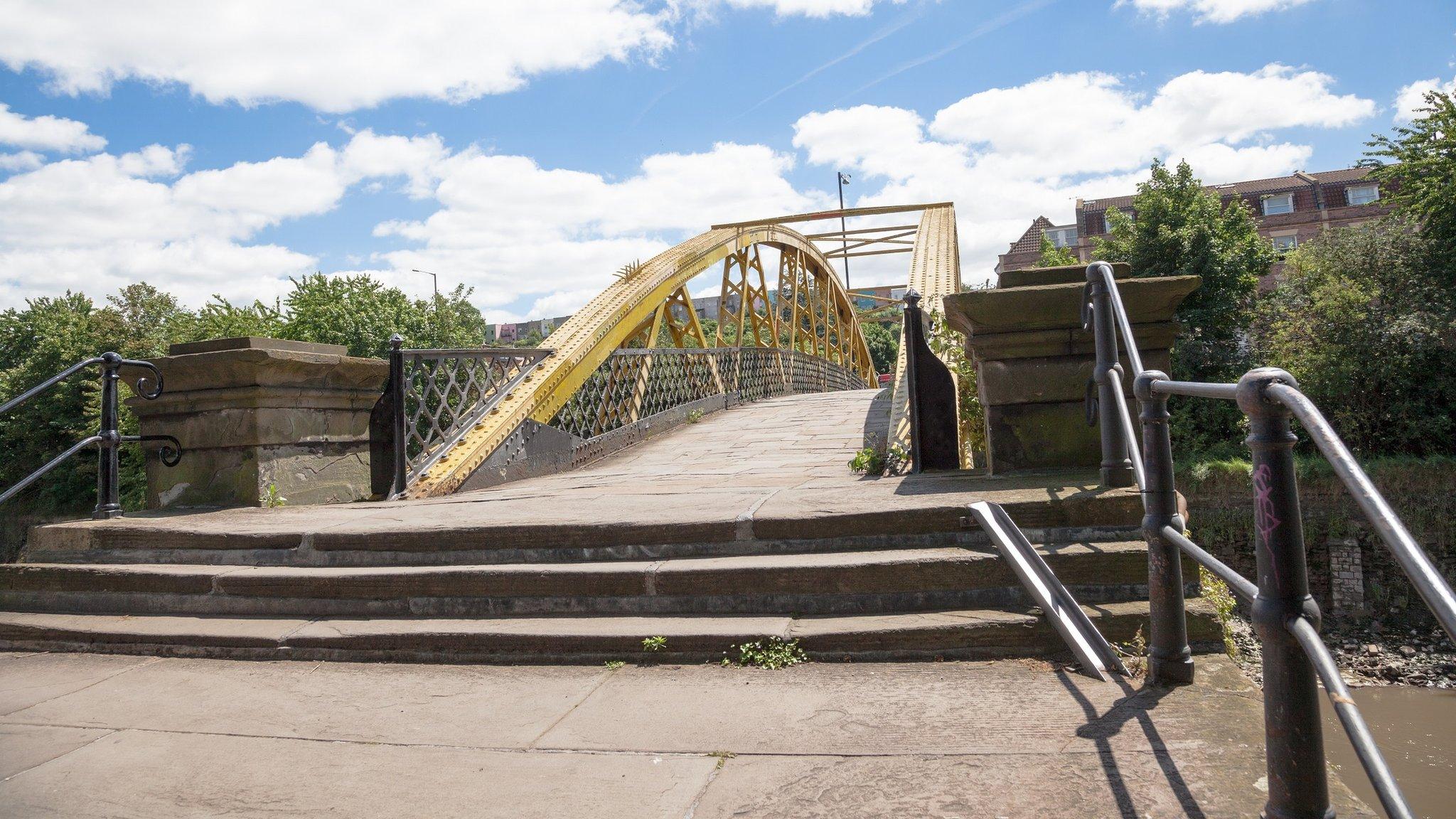Why do Bristol's bridges take sooo long to repair?
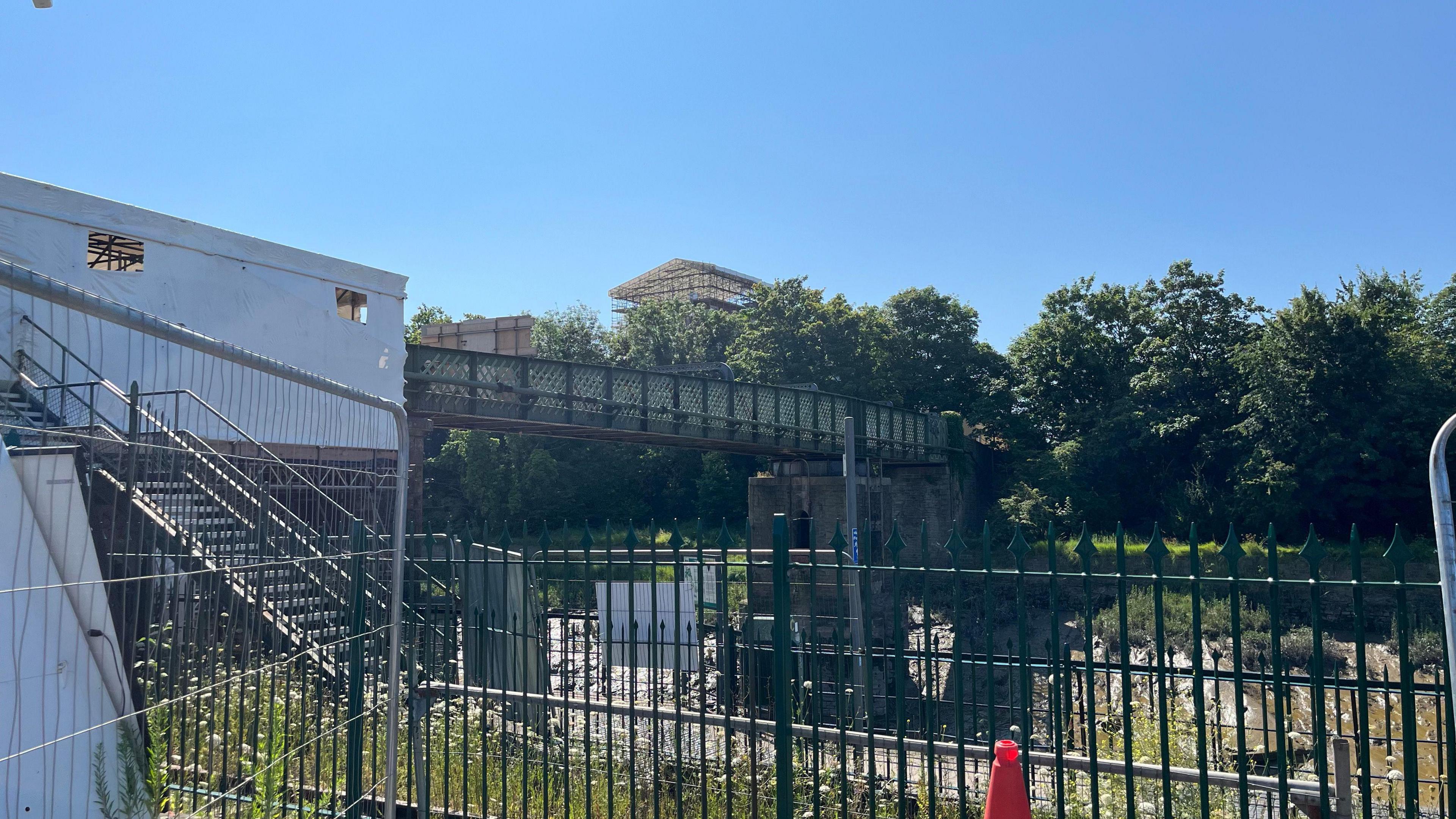
The reopening of Vauxhall Bridge has been delayed by a year
- Published
Bridges - as well as Brunel and balloons - are what former Bristol Mayor Marvin Rees previously described as being "all anyone talked about" here.
The city is famous for them. Not least for the Clifton Suspension Bridge, but the other historic bridges that also cross the River Avon.
Vauxhall, Gaol Ferry, Sparke Evans and the Banana pedestrian bridges bring a vital connection for many locals and tourists to and from the south of the city.
In fact the reopening of Gaol Ferry, which connects Southville and Wapping Wharf, in September 2023 was so big a party was held.
Its repair took twice as long as originally planned once the full extent of the damage was uncovered, delaying completion to more than a year.
Now, the reopening of Vauxhall will be delayed after engineers found buried, unknown aspects of the bridge that were only discovered when they stripped it back.
It means the Grade II listed bridge will be closed for three years - until 2026 - rather than the planned two.
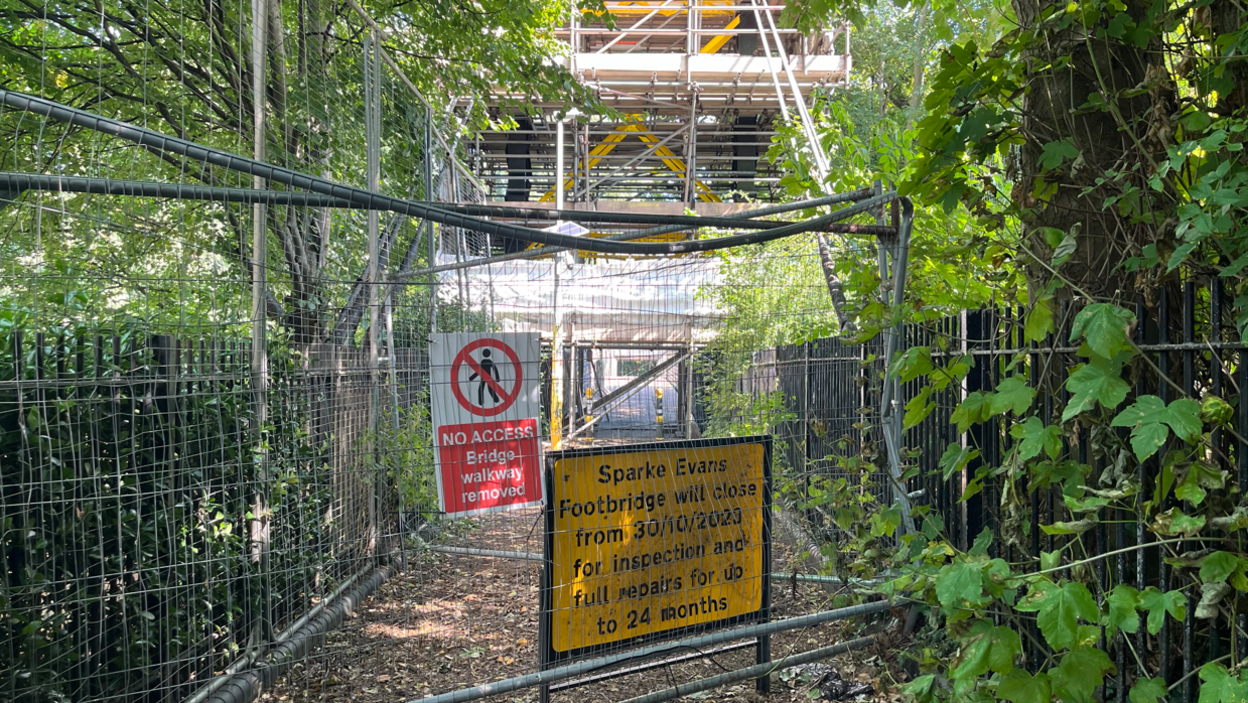
Bristol City Council hopes it will not have to delay Sparke Evans Park Bridge's reopening
Sparke Evans, also initially closed for two years in October 2023, also faces a delay, however Bristol City Council believe it can avoid this.
The Banana Bridge, formally known as the Langton Street Bridge, closed in 2024 and is on track to reopen in late 2025.
Although the council's restoration programme sequences the repairs rather than close the bridges all at once, locals and businesses have previously voiced their concerns about the disruption it brings.
People travelling from south of the River Avon faced an extra 25 minute walk or 10 minute cycle to get into the city when Gaol Ferry closed.
So why do Bristol's bridges seem to take a long time to repair?
'Triple whammy'
Andrew Graves, a civil engineering and construction expert who is a professor at the University of Bath, told the BBC the delays are due to a "triple whammy".
"You've had lack of maintenance, no improvement in the civil engineering industry and a lack of money because central government has kept them really capped for that," he said.
He said there has been a "pretty grotesque lack of maintenance over the past few decades" of bridges that are more than 100 years old.
Prof Graves added there needs to be a "major change" in the relationship between the government and local authorities, otherwise "the situation will get worse".
"There will be less money for road and rail maintenance, and bridges. We're looking at a real crisis in our infrastructure," he said.
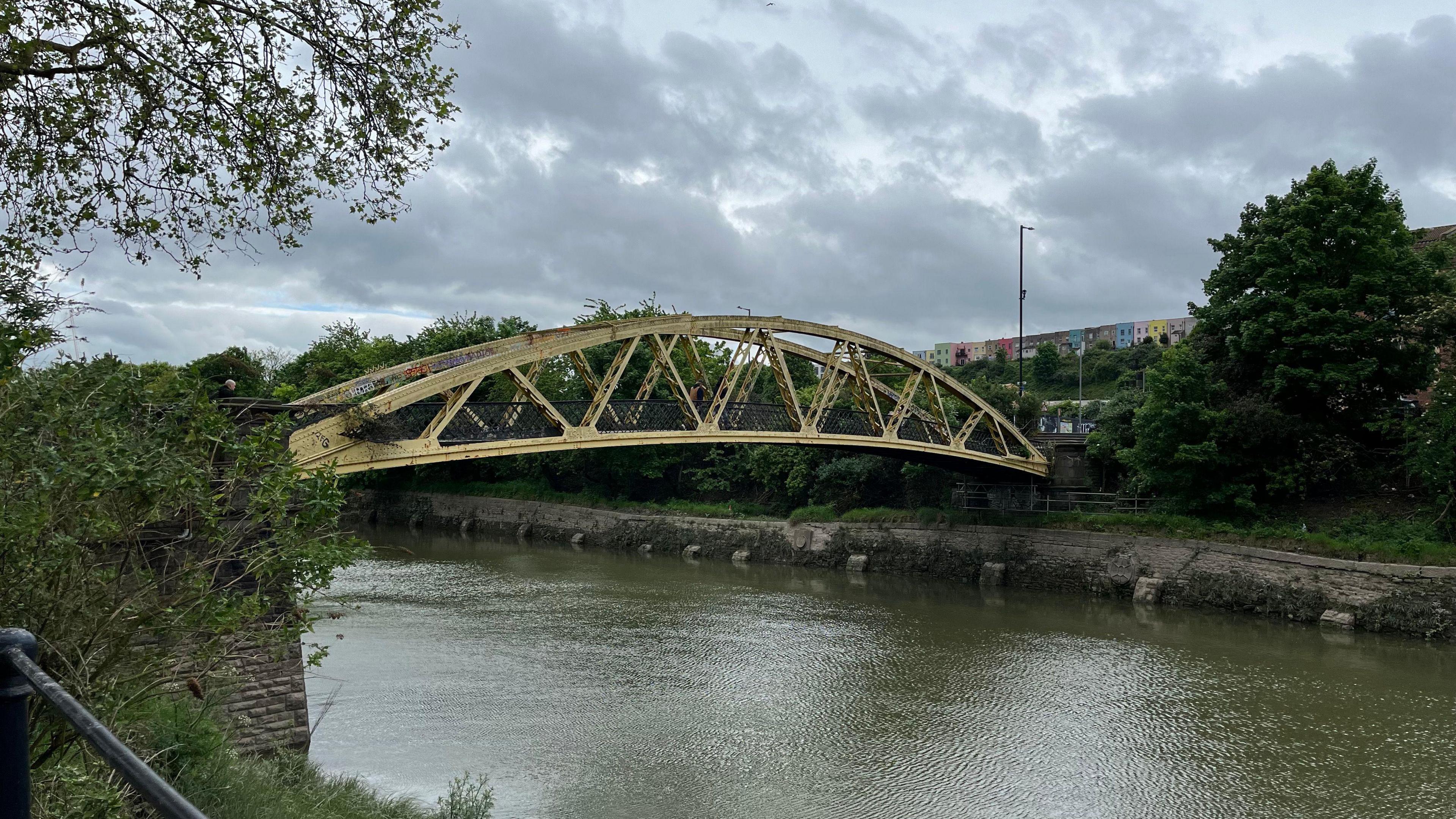
The Banana Bridge is the latest bridge to close in the programme
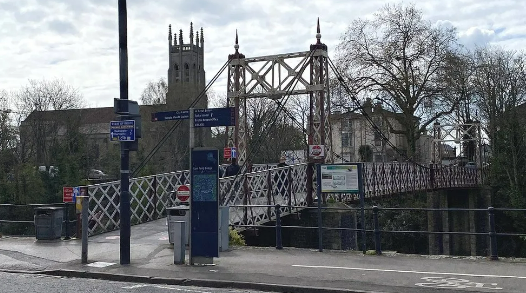
Gaol Ferry Bridge was closed for more than a year but reopened in September 2023
Ed Hall, from Friends of the Avon New Cut, told the BBC he is "not surprised" at the Vauxhall delay.
"If you don't maintain, this is what happens. For years I've watched Vauxhall Bridge and thought it must be falling apart," he said.
"A lack of maintenance, which isn't that much, is going to haunt them [the council] because it costs a huge amount of money. The longer you leave it the more it costs."
What Bristol City Council says
The council's big programme means the four pedestrian bridges - and two road bridges, Bedminster and Bath - will be restored over five years, costing £16m.
Inspections to the Bedminster and Bath bridges will start in September or October. The date of their closures have not been announced, but they will be one after the other.
Shaun Taylor, head of highways at Bristol City Council, said the refurbishment of the bridges will "extend their lives to 40 to 50 years at least".
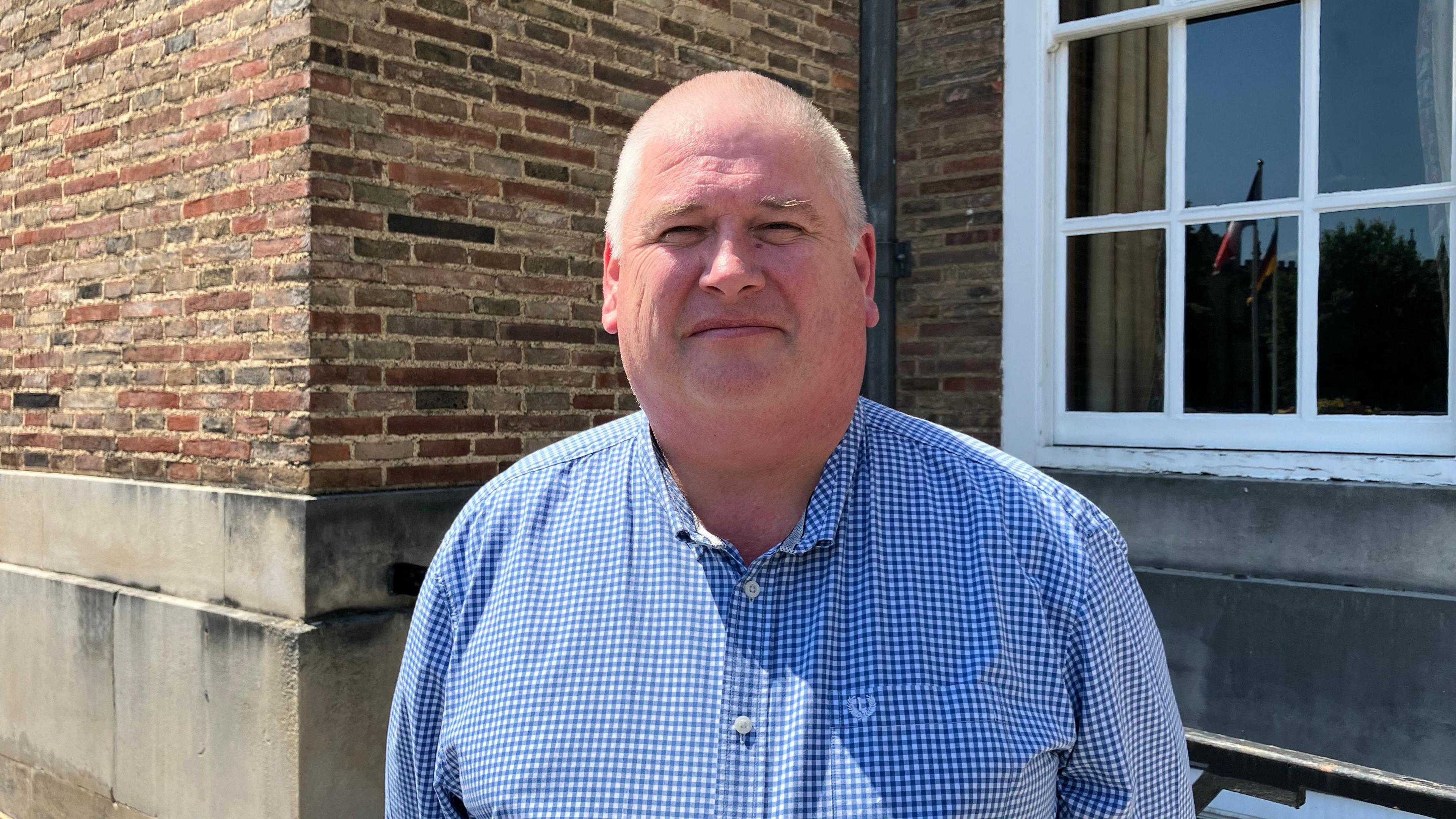
Shaun Taylor said he is "sorry" for the disruption to residents
"Ultimately, I appreciate it's a long time but if we didn't do the works the bridge wouldn't be there," he said.
"Our view is it's better to do these works properly and give it back to the communities so they can enjoy the bridges for many years to come."
He said the council wants to make key changes to the bridges that will make sure it can repair the bridges more easily in the future.
He added this would be subject to funding being available.
The money for the project has come from a government grant, in which the West of England Combined Authority received £540m.
Councillor Ed Plowden, chair of the transport committee, said: "If you've ever been on Sparke Evans Park Bridge and bounced up and down, the bridge wobbled.
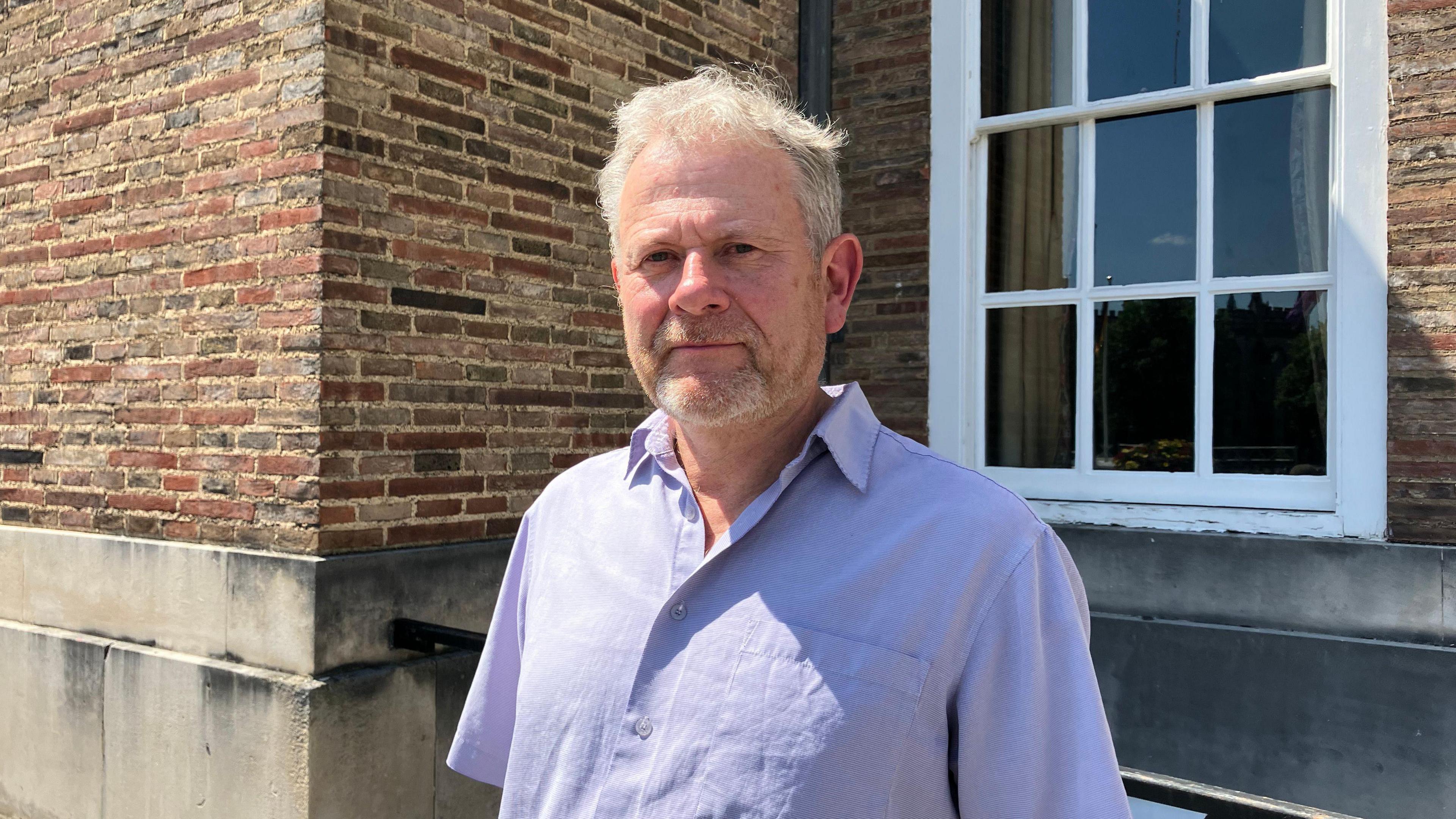
Councillor Ed Plowden said walking and cycling is still a "priority" despite the bridge closures
"This drives home the point that these bridges are far more difficult to repair," he said.
He said the bridges are not designed for heavy loads, so repairing them becomes "tricky".
He added: "I'm absolutely convinced we're doing everything we can in the right order."
The council confirmed the Banana Bridge will keep its charming yellow colour when it reopens.
A Ministry of Housing, Communities and Local Government spokesperson said: “We will get local government back on its feet by doing the basics right.
“We will do this by providing councils with more stability through multi-year funding settlements, ending competitive bidding for pots of money and reforming the local audit system.”
Follow BBC Bristol on Facebook, external, X, external and Instagram, external. Send your story ideas to us on email or via WhatsApp on 0800 313 4630.
Related topics
- Published16 March 2024
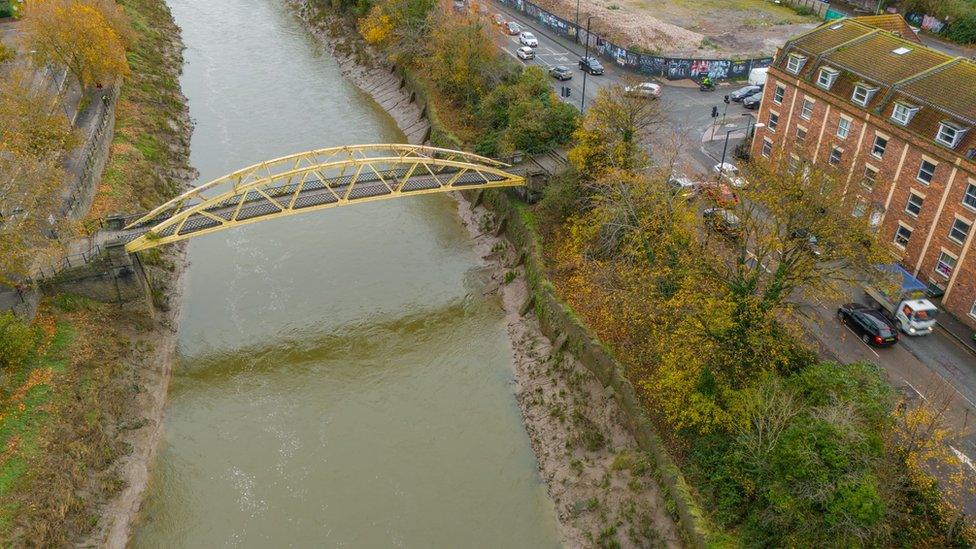
- Published18 July 2024
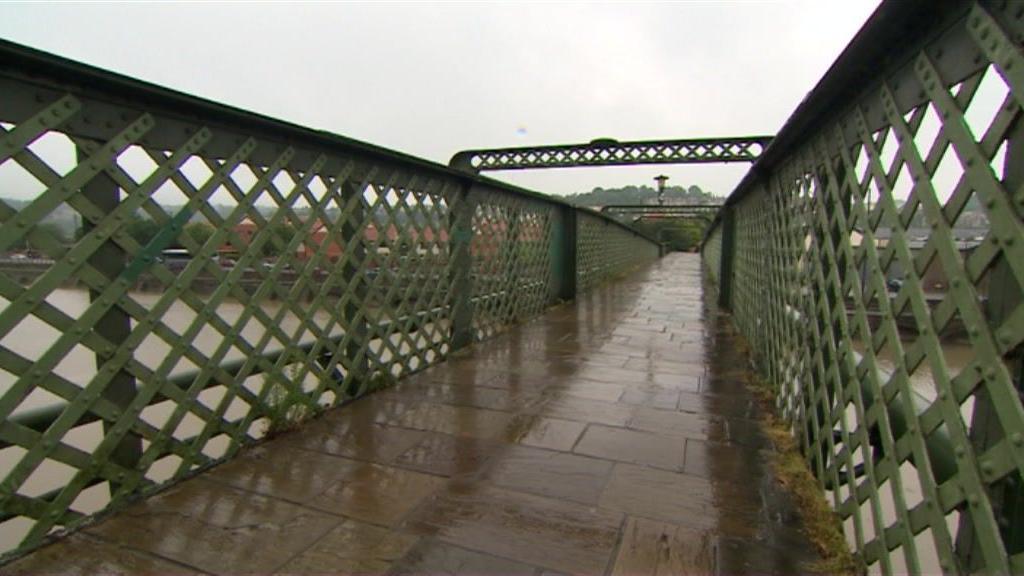
- Published16 September 2023
